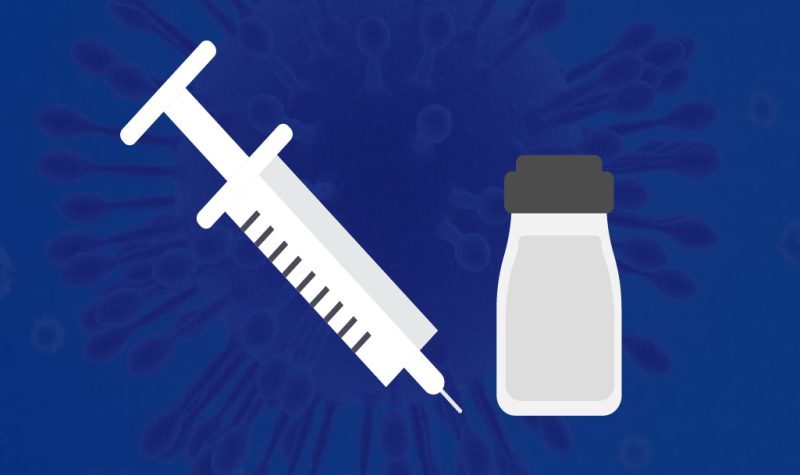Ottawa Public Health (OPH) has teamed up with local schools to deliver vaccines to kids aged five to 11.
Last week, Canada’s Chief Public Health Officer Theresa Tam announced vaccination appointments were available for kids born in 2016 or earlier. On Wednesday, OPH made the announcement that, starting on Dec. 2, vaccination clinics would begin operating out of select schools to offer greater access to the vaccine.
OPH says they chose to operate out of schools not just for the sake of convenience, but also because the consent and presence of a parent or guardian is required to vaccinate members of this age group.
The new lower-dose vaccine is being made available as the Omicron strain was found in Canada this week. Variants of concern, such as Delta and Omicron, have healthcare workers scrambling to get shots into the arms of the remaining unvaccinated, and kids are no exception.
On Tuesday evening, representatives from the Children’s Hospital of Eastern Ontario (CHEO) and Chief of Ottawa Public Health Vera Etches held a virtual information session for parents who remain uncertain about whether to vaccinate their kids.
During the session, Etches stressed the importance of vaccinating children in the face of new variants of concern, adding that having contracted COVID-19 before won’t protect individuals against new strains.
“It is recommended if... a child between five and 11 has had COVID to follow up with a vaccination,” says Etches. “Because COVID is out there, there are different variants, you can get infected again. And that vaccine does provide a high level of protection. It's almost like the first dose of your vaccine is a booster dose, reminding your body of how to fight COVID after you've had that infection, so it's actually helpful and provides a strong level of protection to carry on with vaccination after an infection.”
Although evidence shows younger children are generally less susceptible to extreme symptoms of COVID experienced in some adults, there are other complications to worry about. According to the Mayo Clinic, a condition called Multisystem Inflammatory Syndrome in Children (MIS-C) has been linked to COVID-19, and is seen in young children. The syndrome is painful, causing inflammation to the heart, lungs, blood vessels, kidneys, digestive system, brain, skin or eyes. If the disease goes untreated, it can lead to permanent damage, or even death.
Etches says that parents shouldn’t take a “wait-and-see” approach to having their kids vaccinated, as the 10 microgram double-dose recommended for kids will prevent kids from developing MIS-C, as well as keep them from asymptomatically spreading COVID to vulnerable family members.
“Don't wait, because we have rising levels of COVID in our province and in our city,” says Etches. “We have a lot of outbreaks. The number of outbreaks has grown in this age group. And so it shows us COVID affecting children's lives, and you need the protection now. It's also useful to have as much protection as you can going into the holidays, when historically we've seen that COVID levels will rise further with more gatherings. There's that protection for the child, there's the protection for their loved ones.”
When the approval of vaccines for kids aged five to 11 was first announced last week, the Canadian Paediatric Society released a study revealing the results of clinical trials in the development of the kids’ vaccine. The study looked at the effects of the vaccine on kids in the five to 11 age group compared to those of the 16 to 25 age group. Whereas in the early days of the COVID-19 vaccine, some adults exhibited severe side effects such as allergic reactions or anaphylaxis, myocarditis or pericarditis, or neurological symptoms, no extreme side-effects were seen in children, the study found.
Dr. Anne Pham-Huy, a pediatrician at CHEO who spoke at the information session on Tuesday, says the results of this study should help reassure parents of the safety and efficacy of this vaccine.
“This study looked at the five to 11 year olds,” says Pham-Huy. “There were about 3,000 kids that received the vaccine in this study. And they studied them for a little bit more than two months after the second dose. The kids five to 11 had some of the common side effects, such as sore arm, redness and swelling at the site of the injection, some headaches, some fatigue. Obviously, we were concerned about the rare side effects, and none of those were reported at all in this study.”
Appointments for kids will be available at 15 schools across Ottawa, with more still to come. Opening hours for the clinics will vary, with some schedules running during school hours, and others operating during the afternoon and evening.
Parents can also schedule a vaccination appointment for their children at any of the seven OPH vaccination clinics in Ottawa, or at any eligible pop-up clinic or pharmacy.
Those eligible for an appointment include kids aged five to 11 years old, with no complicating conditions, who reside nearby the school the appointment is scheduled at.
For more information, visit www.ottawapublichealth.ca.
Listen to the CHUO story below:


